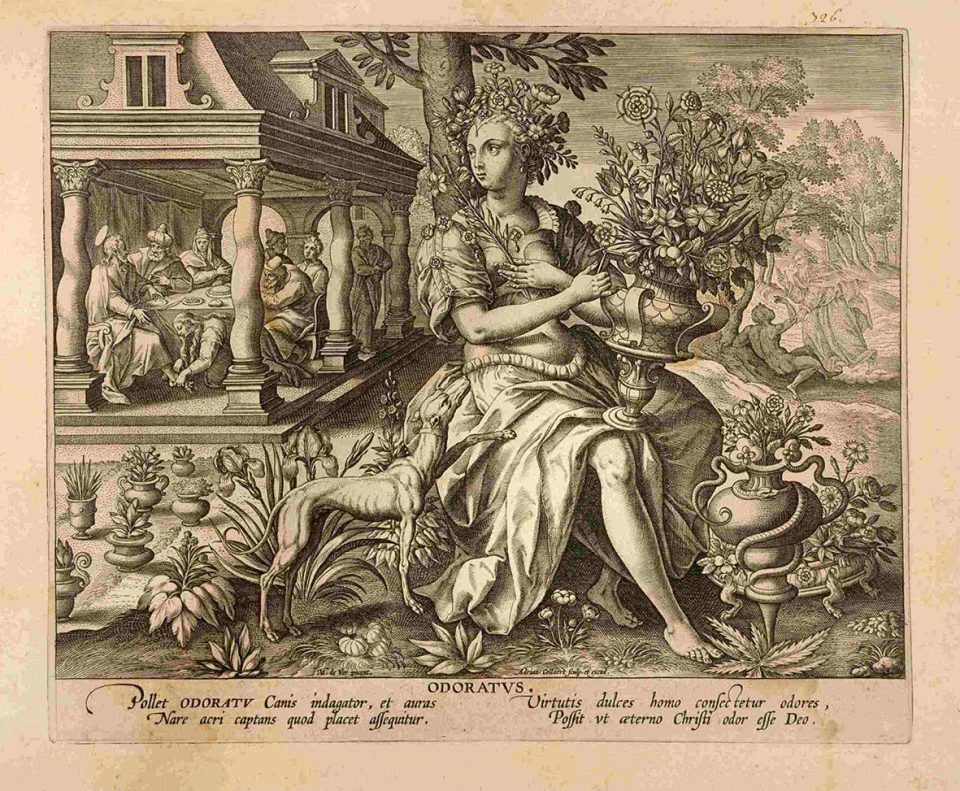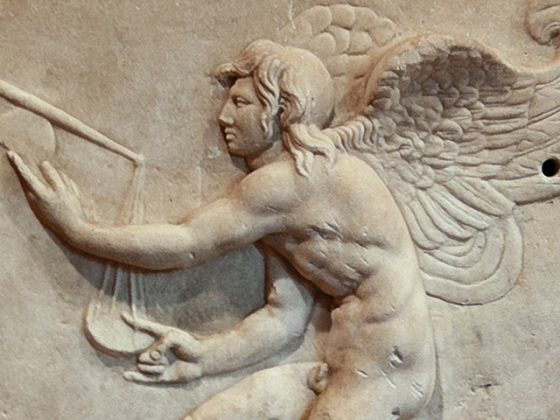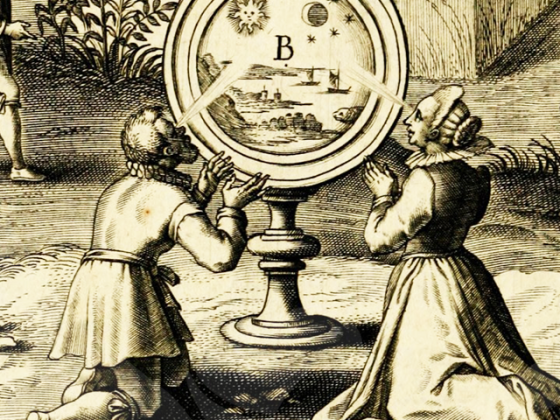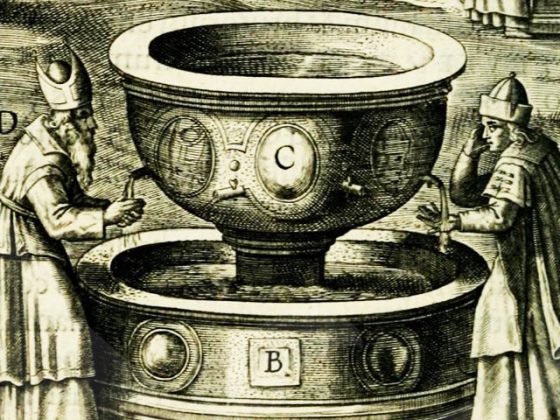Dearly beloved readers:
I hereby send you another engraving inherent to the series that corresponds to the five human senses. On this occasion we will try to reveal the one corresponding to:
ODORATVS
─‘THE SENSE OF SMELL’─

The sense of smell [Olfaction], dear friends, also has a profound significance in the mysteries. In addition to allowing us to grasp the smells of Mother Nature, it would moreover allow us to perceive other fragrances that correspond to the superior worlds, once we have been properly educated. We must know that if our body is basically a set of energies, many of those energies have a very low, coarse and horrible vibration. They are the vibrations of the “I”.
It is for this reason that it is said that on some occasions, after the death of a person who has been profoundly virtuous, his body expels unimaginable perfumed scents. Obviously, it is the vibrations of the BEING and His corresponding aromas. On many occasions, true occultists detect sinister presences precisely because they begin to perceive really unpleasant, putrefying and abominable smells.
On one occasion, in what we call the THIRD CHAMBER in our studies, the V.M. Samael guided us in a meditation of a very specific nature. It was about relaxing and immediately starting to concentrate on someone or something by using the sense of smell to help us. For this reason, the blessed Patriarch asked all of us present to concentrate on the pyramids of Giza ─in Egypt─, and during that concentration we had to get closer and closer to that monument by using the sense of smell as an instrument to get closer to it.
Each one of us who were there, at the end of that meditation, was relating what he managed to perceive during this concentration-meditation; this is what Master Samael demanded of us. After having expressed our metaphysical experiences during that practice, the Avatar of Aquarius told us: “In the Middle Ages there was a secret order whose members, when they met, investigated the private lives of kings and nobles precisely to see clearly if they were acting ethically in their respective positions.” Then the V.M. Samael added: “That order eventually disappeared, but within the small world of detectives the habit still remains of touching their noses and saying ‘This smells bad to me!' when they are investigating a crime.” Incredible, dear reader, that behind many habits that often go unnoticed by the humanoids of Earth, there are tremendous traditions that the common people totally ignore.
It is known by all mortals that the sense of smell is extremely well developed among canines or dogs and also among cats. This is a gift that Divine Mother Nature has given to these little Elementals in order to help them when they are in danger or disoriented. That is why we see a greyhound near the lady in our engraving.
Nor can we forget that the dog is the icon that represents sexual mysteries. It is enough to remember the last work of Hercules, according to Greek mythology, and which consisted in the liberation of the THREE-HEADED canine CERBERUS.
We must emphasize that this lady represents the feminine virtues and, esoterically, she is called by the alchemists hermetic vessel of operations. This is the reason why we see her holding a beautiful vase full of flowers of various kinds on her lap. Alchemically, without a hermetic vessel─namely: a suitable lady─ it is impossible to carry out what is referred to as the Great Inner Work.
The woman in our engraving is leaning on a tree which in this case symbolizes the tree of life: the BEING. That is why another sacred vase around which a serpent coils can be seen near the woman. This serpent is an allusion to Devi-Kundalini, our dear inner Mother, who awakens with the enchantments of love.
Undoubtedly, that is the reason why the lady of our subject matter shows a bare leg, because in medieval times it was a sign with which alchemists or connoisseurs of the hermetic art used to identify each other.
It is curious to see the lady in our engraving wearing various flowers on her head, as if wanting to impregnate herself with the aromas of the virtues of the sacred Hierophantines. It is also important to highlight the branch full of leaves and crowned by a flower. This again confirms that the woman is the entrance to the portal of mysteries.
Behind this maiden we can see a room in which the three wise men are gathered with the Great Kabir of Christianity, celebrating what seems to be the Last Supper. The Holy Scriptures tell us that, precisely in those most sacred moments, a woman called Mary of Magdala washed the feet of the blessed Master Aberamentho using perfume of spikenard. Subsequently, the same lady dried the feet of the Redeemer of mankind with her own hair. Precisely the Patriarch Samael Aun Weor tells us that the spikenard is the perfume of the blessed White Lodge. “He who has ears may he hear”……..
Now, in the background of the engraving, specifically on the right side of this canvas seen from the eyes of the reader, we can clearly see Adam, who continues to be reproached for having lost his angelic state. A Master or Angel is advising him and it would seem as if he is trying to defend himself by blaming his fall on the mythical Eve. What must be clear to us, patient reader, is that this engraving evokes both the mysteries that are enclosed within the woman and those that are linked to the Christic mysteries at the same time.
This engraving culminates with a sentence written in Latin and which tells us:
«POLLET ODORATV CANIS INDAGATOR, ET AURAS NARE ACRI CAPTANS QUOD PLACET ASSEQUITUR VIRTUTIS DULCES HOMO CONSECTETUR ODORES POSFIT UT AETERNO CHRISTI ODOR ESSE DEO».
Translation:
‘THE INQUIRING DOG HAS A RICH SENSE OF SMELL, AND WITH THE POINTED NOSE HE CAPTURES THE PERFUMES, AND ACHIEVES WHAT HE LIKES. LET MAN PURSUE THE SWEET SCENTS OF VIRTUE SO THAT THE SCENT OF CHRIST MAY BE ETERNALLY FOR GOD.'
I culminate this message with a few sentences to be reflected upon by our kind reader:
“Scholarship without virtue is like pearls in a dunghill”.
Cervantes
“Virtue is the perfection of Nature.”
Cicero
“The virtue of a woman is a beautiful virtue. That of a male sex should be a noble virtue.”
Kant
“Virtue renders evil more jealous than vice does.”
Euripides
“In the bosom of a virtuous man there is a God.”
Seneca
SUB SPECIE AETERNITAS.
─'From the perspective of eternity'─.
KWEN KHAN KHU




